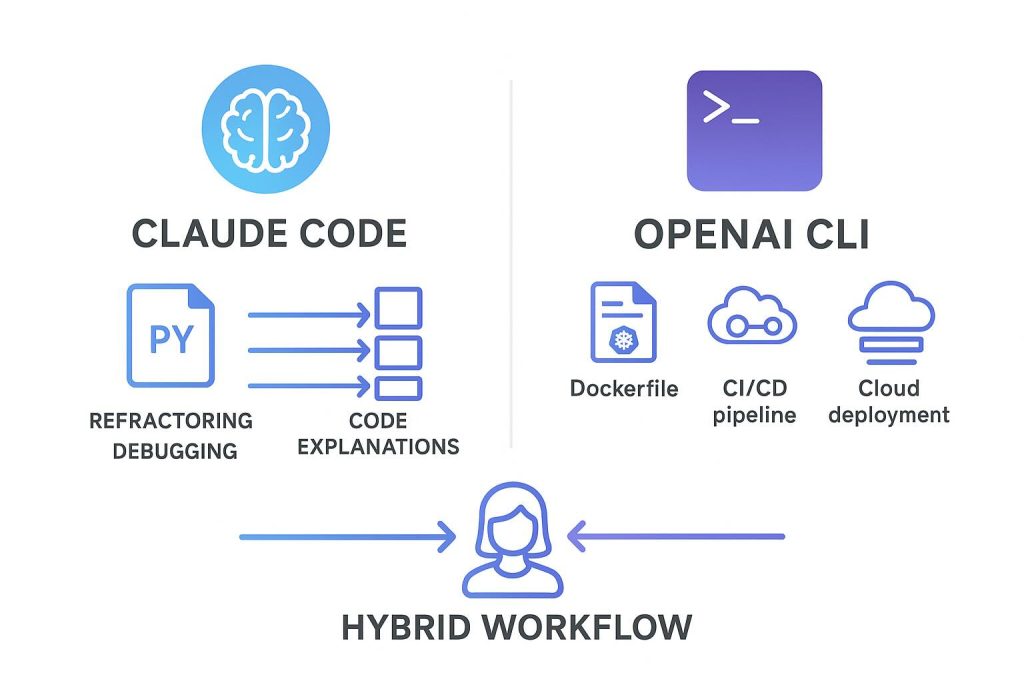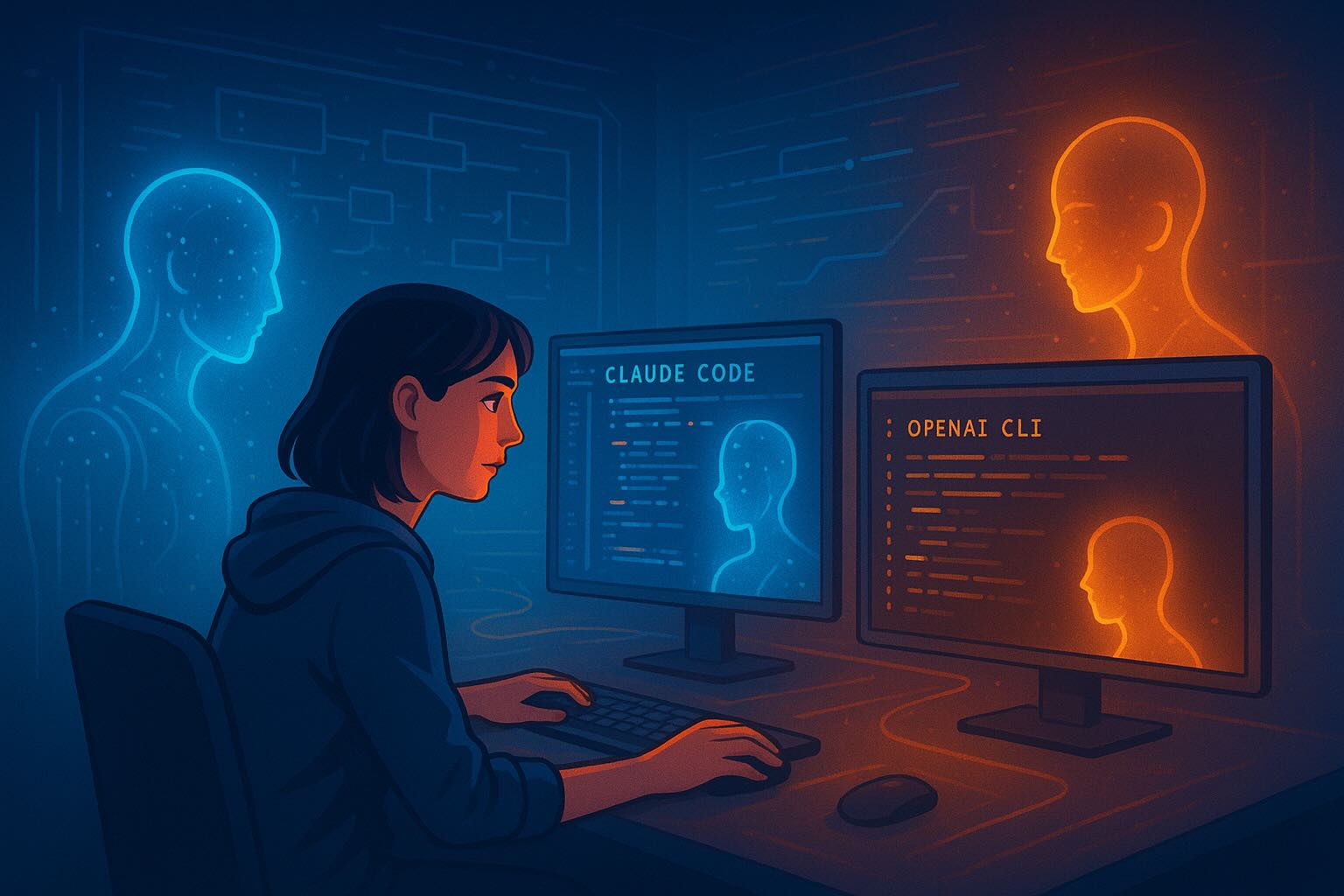For decades, software engineering has been guided by structured methodologies: waterfall, agile, DevOps pipelines. Each new era brought tools designed to reduce complexity, improve collaboration, and ship faster. But we may now be entering a deeper shift — one that changes the very nature of programming.
The rise of AI coding agents is redefining how developers interact with code. Tools like Claude Code and OpenAI CLI are not just autocomplete engines. They function more like collaborative partners — capable of understanding context, reasoning about entire projects, and taking action across multiple steps of the software lifecycle.
Some developers have described this emerging workflow as “vibe coding,” highlighting the intuitive, almost conversational feel of coding with an AI partner. But as the tooling matures, a more accurate term is emerging: agent-assisted development.
Beyond Autocomplete: The Agent Shift
Traditional AI coding assistants (like Copilot) extend the IDE with smart suggestions. But coding agents go further:
- They run code: Not just suggesting snippets, but executing tests, evaluating results, and proposing fixes.
- They keep context: Remembering file structures, dependencies, and goals without re-explanation.
- They work across tasks: Writing, refactoring, debugging, and documenting seamlessly.
- They adapt to intent: Filling in low-level implementation details when given high-level guidance.
The result is a workflow that feels less like manually coding line-by-line, and more like steering a capable teammate.

Claude Code vs. OpenAI CLI: A Comparative Look
Both Anthropic’s Claude Code and OpenAI’s CLI are on the cutting edge of this shift, but they approach the problem from different angles.
Claude Code
- Strengths:
- Deep integration into IDEs (VS Code, JetBrains).
- Exceptional handling of large codebases thanks to Claude’s large context window.
- Strong reasoning abilities for debugging and explaining legacy code.
- More “conversational” feel, often favored for collaborative problem-solving.
- Limitations:
- Reliant on IDE plugins; less suited for headless or automated workflows.
- Still evolving ecosystem — fewer third-party integrations compared to OpenAI.
OpenAI CLI
- Strengths:
- Terminal-first design: ideal for developers comfortable in CLI environments.
- Scriptable and automatable: integrates easily with shell scripts, CI/CD, and DevOps pipelines.
- Flexible use cases: from scaffolding new projects to automated refactoring across repos.
- Strong ecosystem momentum — fits well with broader OpenAI toolchains.
- Limitations:
- Less IDE integration — better for terminal-driven developers than GUI-heavy workflows.
- Context management can be more manual compared to Claude’s conversational persistence.
In short: Claude Code excels at deep, collaborative coding inside an IDE, while OpenAI CLI shines in automation, pipelines, and terminal-native workflows. Many developers may find themselves using both, depending on the project stage.
Benefits of Agent-Assisted Development
- Acceleration of Prototyping
Ideas move from sketch to prototype in hours. - Lower Cognitive Load
Agents handle the repetitive and mechanical parts of programming. - Intent-Based Development
Developers increasingly describe what they want, not how to implement it. - Refactoring at Scale
Tasks that were once painful (e.g., migrating frameworks, reorganizing codebases) can be offloaded to an agent.
Risks and Challenges
- Reliability: Agents still hallucinate, generating solutions that look plausible but fail in subtle ways.
- Auditability: Large-scale automated changes need transparent logs and diff reviews.
- Skill Drift: Over-reliance could erode core programming intuition, especially for juniors.
- Collaboration Complexity: Teams must define new norms for code style, reviews, and agent usage.
The Future: Agents as Teammates
The trajectory is clear: coding agents are not a fad, but the foundation of a new paradigm. Just as version control and CI/CD pipelines reshaped team workflows, coding agents will push us toward:
- Agent-aware CI/CD pipelines (where AI proposes fixes before PRs even hit review).
- Hybrid teams of humans and agents, with explicit handoffs between them.
- Meta-development roles, where engineers design workflows for agents rather than doing all the work themselves.
Final Thought
What’s being called “vibe coding” today may simply be the early language for a more profound shift. The developer experience is moving from hands-on coding to intent-driven orchestration — guiding intelligent collaborators that can handle complexity at scale.
Claude Code and OpenAI CLI are leading indicators of what’s to come: a world where coding agents aren’t just tools, but teammates.


Leave a Reply